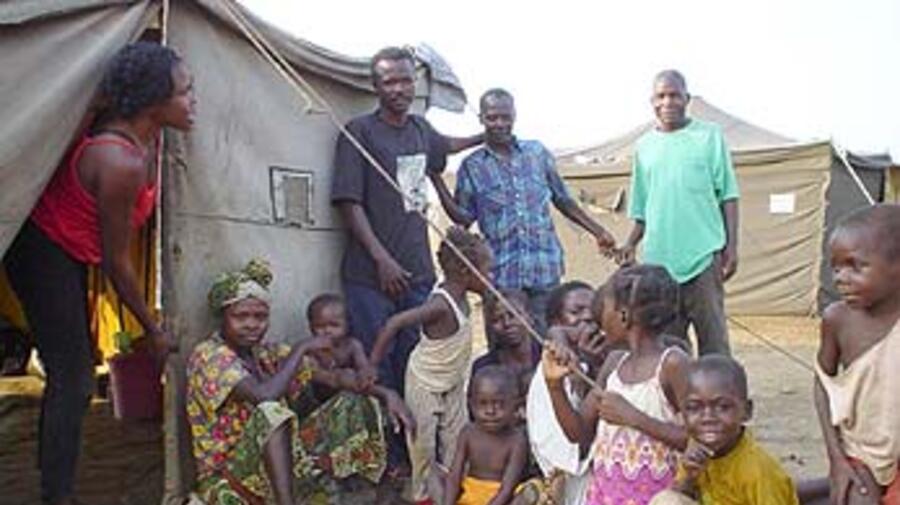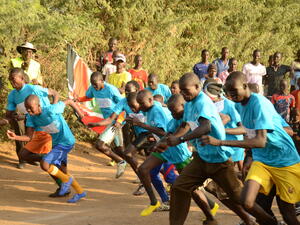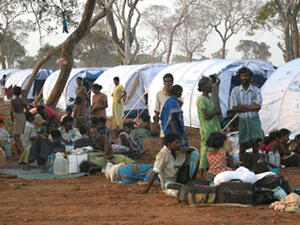Angolan refugees start their journey home on World Refugee Day
Angolan refugees start their journey home on World Refugee Day

Spontaneous returnees to Angola's Kiowa village will soon be joined by their countrymen returning from exile with UNHCR assistance.
KINSHASA, Democratic Republic of the Congo, June 20 (UNHCR) - Hundreds of Angolan refugees marked World Refugee Day today by heading home from their camps in the Democratic Republic of the Congo (DRC), kicking off a major repatriation operation organised by the UN refugee agency.
On Friday, two convoys carrying an estimated 500 Angolan refugees left three camps in the DRC, the first of an estimated 220,000 Angolans expected to return to Angola from the region over the next two years. This is more than one-third of the Angolan refugee population who had fled nearly three decades of civil war for surrounding countries.
The first convoy picked up 250-300 refugees from Kilueka and Nkondo camps in south-western DRC's Bas Congo province and started a three- to four-hour drive towards the northern Angola town of Mbanza Congo. At the border crossing, they were welcomed in a ceremony by government officials, donors and UN representatives.
The second convoy departed from Tshimbumbulu camp near Kisenge in southern DRC's Katanga province and proceeded to Luau in the eastern Angolan province of Moxico.
To receive the returnees in Angola, transit centres with a combined capacity for up to 2,000 people have been established in Mbanza Congo and Luau. Returnees will spend the first few days at these centres before proceeding to their areas of origin. They will be given mine-awareness training and information on HIV/AIDS. They will also receive reintegration packages consisting of basic domestic supplies such as blankets, jerry cans, mats and kitchen sets, and a three-month food supply.
The voluntary repatriation will take place in several phases over the next two years initially, helping Angolan refugees return to areas identified as having basic facilities like water, sanitation, schools and health centres. These areas include Cazombo commune in Moxico province in eastern Angola and Mbanza Congo in the north.
In early July, repatriation is planned to begin from Namibia to the towns of Caiundo and Menongue in the southern province of Cuando Cubango, and from Zambia to Cazombo in Moxico province. More than 8,000 Angolans in Zambia's Meheba camp have already registered for return, but a test convoy on June 12 was aborted when a mine was found on the road from the Zambian border to Cazombo.
The Angolan government estimates that since May 2002, 130,000 Angolan refugees have already returned home on their own, mainly to the provinces of Uíge, Zaire, Moxico and Cuando Cubango.
UNHCR has appealed for $29 million for the 2003 phase of the repatriation operation, but has so far received only $9 million, less than a third of the total needed. There are indications that a further $12 million may be coming.







